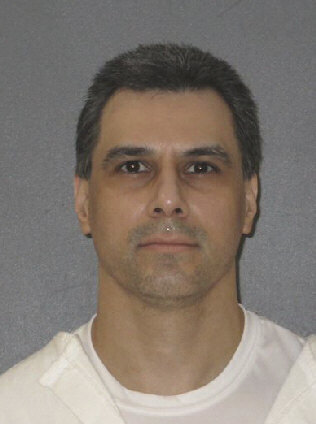U.S. Supreme Court
Expected noncompliance with court orders shouldn’t defeat standing, Kavanaugh says in DNA-test arguments

Texas death row inmate Ruben Gutierrez. (Photo provided by the Texas Department of Criminal Justice via the Associated Press)
The U.S. Supreme Court appeared divided Monday in arguments over a death row inmate’s quest for a DNA test to show that he wasn’t inside a trailer where robbery accomplices killed an 85-year-old woman.
Justice Brett Kavanaugh was among the justices appearing sympathetic to Texas inmate Ruben Gutierrez’s bid for testing to establish that he didn’t deserve the death penalty for the 1998 murder, report Courthouse News Service, Law.com, SCOTUSblog and the New York Times.
Kavanaugh wrote the 6-3 Supreme Court decision in 2023 that allowed Texas inmate Rodney Reed to pursue a DNA test.
The issue in the Reed case was whether the statute of limitations barred his request for a DNA test in his federal civil rights lawsuit. Before reaching the issue, however, the Supreme Court said Reed had sufficiently alleged an injury that would be redressed by a finding that state DNA testing procedures violate due process.
In Gutierrez’s case, the issue is whether Gutierrez had standing to challenge Texas statute that allows postconviction DNA testing only when it could lead to an overturned conviction. The law does not allow testing when it affects only the sentence, as in Gutierrez’s case.
Texas argues that Gutierrez doesn’t have standing to bring a due process challenge to the statute because he would still be eligible for the death penalty under Texas law and wouldn’t be entitled to the test.
Texas law permits a capital murder conviction in a robbery scheme even if other accomplices killed the victim and even if the defendant didn’t anticipate the murder.
Lawyers for Gutierrez, on the other hand, argue that jurors would not have sentenced Gutierrez to death if DNA showed that he was not in the home and that he wasn’t a “major participant” in the crime. They also argue that courts don’t have to determine whether state officials would redress Gutierrez’s injury if courts were to declare the statute unconstitutional.
Kavanaugh “appeared to take umbrage at the suggestion” that prosecutors might not allow DNA testing even if the Texas statute is found unconstitutional, according to Law.com.
SCOTUSblog reported on Kavanaugh’s comment.
“I just don’t see,” he said, “how we can say something’s not redressable just because the prosecutor is going to say I’m not going to comply with a court order. You know, if President Nixon said I’m not going to come turn over the tapes no matter what, you wouldn’t say, ‘Oh, I guess we don’t have standing to hear the executive privilege case.’”
Courthouse News Service points out that Kavanaugh’s comment comes following suggestions by Vice President JD Vance that presidents could ignore court orders that interfere with their lawful exercise of power.
The case is Gutierrez v. Saenz.
Write a letter to the editor, share a story tip or update, or report an error.

